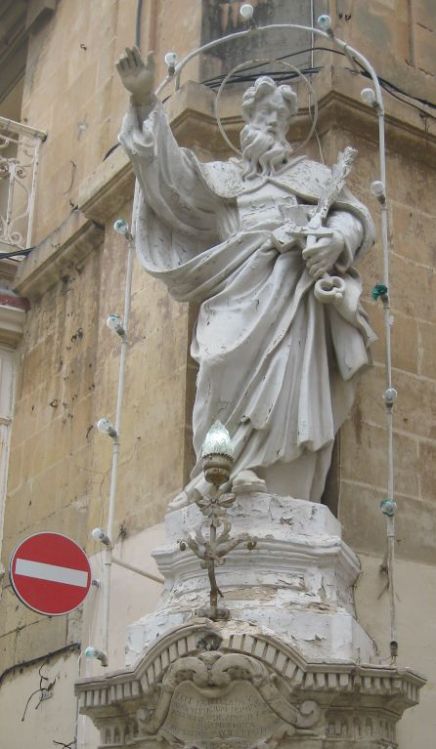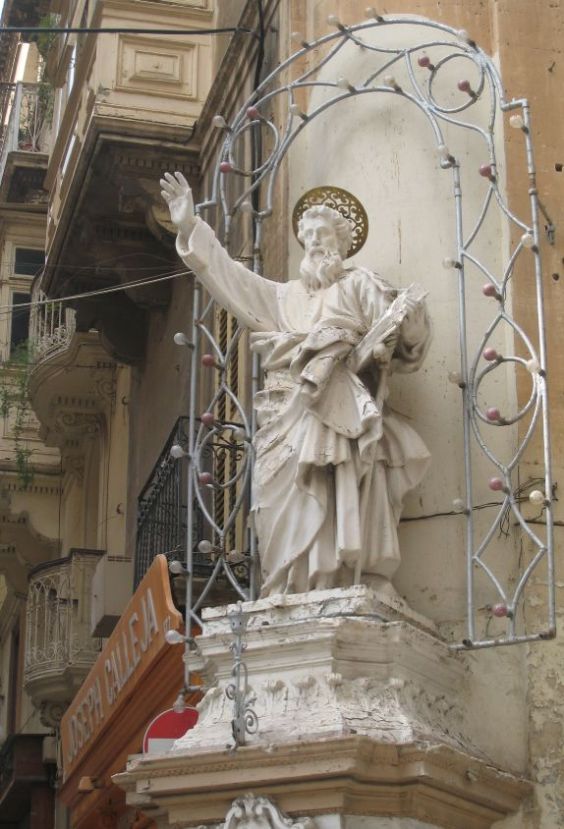Tags
A long time ago, there were two men who belonged to the same church, but they didn’t get on very well at all.
One of theme was an acknowledged leader in the church, who had taken a prominent position right from the beginning. He was a bit hot-headed and tended to rush in where angels feared to treat, but everyone respected him and looked up to him. He was a passionate believer, and people were drawn by his passion and energy.
The other guy came along later. He claimed to have had a big conversion, and then just expected to be part of the church. He didn’t have the history or the knowledge that the others had because they were part of the foundation from the start. You could say that he brought a fresh vision, new eyes, new insight. And he did things in a different way from the original team. That didn’t always go down well. He didn’t always know the way things were done, so he would do things differently. And if he did know how things were done, then he knew a better way.
As you can imagine, it led to conflict.
The first man was Peter. He was one of Jesus’ disciples, part of the team at the start of Jesus’ ministry. It was he who first realised who Jesus was, that he was the Messiah. He was the first one to have an inkling as to what it was all about, the first witness to Christ. That’s important for us, because we too are called to be people who recognise Jesus and proclaim him in your community.
And yes, he did deny Jesus in the High Priest’s courtyard during the trial, but Jesus forgave him and called him to feed the sheep, which is what he had been doing ever since. He preached to hundreds on the day of Pentecost, telling them about Jesus, with that confidence of true faith. He had a ministry of teaching and healing, and had brought many people to faith.
If the Gospel reading had continued, we would have encountered the downside of St Peter. Jesus starts telling the disciples that he is going to suffer and to die. Peter, who thinks he is something now that Jesus has told him that he is the rock on which the church will be built, takes Jesus to one side and tells him no, it’s not going to be like that and don’t go upsetting everybody. One minute Peter is top disciple, the next minute he is being severely rebuked.
Peter is a flawed character. He is not perfect. He is human. Like me. Like all of you. But Jesus still has a purpose for him. To the extent that when Peter is imprisoned and awaiting execution, God sends an angel and releases him from gaol, because there are still things God wants Peter to do. You couldn’t take that for granted – one of the other twelve, James, had already been executed.
So God uses flawed, ordinary people, for his mission in the world. And he uses us too, for his mission to Bensham & Teams.
The second guy was Paul. St Paul was quite a different person. I imagine him as very intelligent – we know he was well educated. I think he was probably very focussed. When he was a Pharisee, he was absolutely passionate about it. He persecuted the Jewish sect with zeal. And then, when he saw Christ in the vision on the road to Damascus and turned to follow him, he brought that same passion to his mission.
He became a follower of the way, a Christian as they would come to be called. That caused a huge amount of suspicion at first. The Jesus-people didn’t trust him. And when he started going round developing churches and welcoming Gentiles into the churches, they became suspicious for different reasons again. He kept in touch with the churches he developed by writing letters, and we still have some of those letters. They help us now because Paul was trying to work out with his congregations what it means to be a follower of Jesus – and that’s something we need to work out again and again, in each generation, for each individual and each church.
It is rather curious that St Peter and St Paul share their celebration day. They didn’t really get on terribly well. They were on two different sides of a big row in the early church. They had to have a big conference in Jerusalem and negotiate the terms of an agreement about how Gentiles could be members of the new and growing Christian church. But even though they agreed a way forward, I don’t think Peter and Paul could actually be described as chums, and after that conference, they seemed rather to keep their distance from one another. But whatever they thought of each other, the church remembers them together and has done since the year 64, when the 29th June was regarded as the anniversary of their martyrdom.
So there’s something in there about how the church deals with differences, how people manage to cope with each other when they don’t agree and don’t like each other. It is more difficult when it’s people within the same church and you have to share the same church, the same tasks, the same mission. Somehow, we need to learn to respect each other and learn to love each other and forgive each other all those things that drive us up the wall. It isn’t easy. How do you learn to stop moaning and complaining about other people?
One of the things I love about the Church of England is the way it embraces people with very different views and ways of doing things. I know what my views are, and, of course, they are right. That goes without saying.
Peter and Paul brought different gifts and skills and roles to the church. Their missions and ministries were complementary. We need them both.
The church uses their feast as the main occasion for ordaining men and women as deacons and priests in the church. I went to the ordination of priests in Durham Cathedral last night, and the ordination of deacons is happening at this moment. They are all very different people, bringing different skills and gifts. We need them. They are the next generation of church leaders who will help us all to be God’s people praying, witnessing and serving in this diocese.
St Peter (Malta)
St Paul (Malta)


